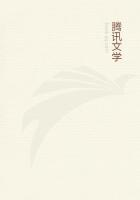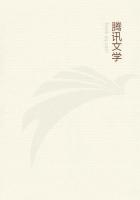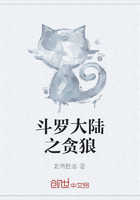There was but one other Son; this clever Lady's, twenty years junior,--"Prince of Mirow" whom we now see. Karl Ludwig Friedrich is the name of this one; age now twenty-eight gone. He, ever since the third month of him, when the poor Serene Father died ("May, 1703"), has been at Mirow with Mamma; getting what education there was,--not too successfully, as would appear. Eight years ago, "in 1726," Mamma sent him off upon his travels; to Geneva, Italy, France: he looked in upon Vienna, too; got a Lieutenant-Colonelcy in the Kaiser's Service, but did not like it; soon gave it up;and returned home to vegetate, perhaps to seek a wife,--having prospects of succession in Strelitz. For the Serene Half-Brother proves to have no children: were his tailoring once finished in the world, our Prince of Mirow is Duke in Chief. On this basis the wedded last year; the little Wife has already brought him one child, a Daughter; and has (as Friedrich notices) another under way, if it prosper. No lack of Daughters, nor of Sons by and by:
eight years hence came the little Charlotte,--subsequently Mother of England: much to her and our astonishment. [Born (at Mirow)19th May, 1744; married (London), 8th September, 1761; died, 18th November, 1818 (Michaelis, ii. 445, 446; Hubner, t. 195; OErtel, pp. 43, 22).]
The poor man did not live to be Duke of Strelitz; he died, 1752, in little Charlotte's eighth year; Tailor Duke SURVIVING him a few months. Little Charlotte's Brother did then succeed, and lasted till 1794; after whom a second Brother, father of the now Serene Strelitzes;--who also is genealogically notable. For from him there came another still more famous Queen: Louisa of Prussia;beautiful to look upon, as "Aunt Charlotte" was not, in a high degree; and who showed herself a Heroine in Napoleon's time, as Aunt Charlotte never was called to do. Both Aunt and Niece were women of sense, of probity, propriety; fairly beyond the average of Queens. And as to their early poverty, ridiculous to this gold-nugget generation, I rather guess it may have done them benefits which the gold-nugget generation, in its Queens and otherwise, stands far more in want of than it thinks.
But enough of this Prince of Mirow, whom Friedrich has accidentally unearthed for us. Indeed there is no farther history of him, for or against. He evidently was not thought to have invented gunpowder, by the public. And yet who knows but, in his very simplicity, there lay something far beyond the Ill Margraf to whom he was so quizzable? Poor down-pressed brother mortal;somnambulating so pacifically in Sleepy Hollow yonder, and ****** no complaint!
He continued, though soon with less enthusiasm, and in the end very rarely, a visitor of Friedrich's during this Reinsberg time.
Patriotic English readers may as well take the few remaining vestiges, too, before quite dismissiug him to Sleepy Hollow.
Here they are, swept accurately together, from that Correspondence of Friedrich with Papa:--"REINSBERG, 18th NOVEMBER, 1736. ... report most submissively that the Prince of Mirow has again been here, with his Mother, Wife, Aunt, Hofdames, Cavaliers and entire Household; so that I thought it was the Flight out of Egypt [Exodus of the Jews]. I begin to have a fear of those good people, as they assured me they would have such pleasure in coming often!""REINSBERG, 1st FEBRUARY, 1737." Let us give it in the Original too, as a specimen of German spelling:--<italic> "Der Prints von Mihrau ist vohr einigen thagen hier gewessen und haben wier einige Wasser schwermer in der See ihm zu Ehren gesmissen, seine frau ist mit eber thoten Printzesin nieder geKomen.--Der General schulenburg ist heute hier gekommen und wirdt morgen"--That is to say:--"The Prince of Mirow was here a few days ago; and we let off, in honor of him, a few water-rockets over the Lake: his Wife has been brought to bed of a dead Princess. General Schulenburg [with a small s] came hither to-day; and to-morrow will" ...
"REINSBERG, 28th MARCH, 1737. ... Prince von Mirow was here yesterday; and tried shooting at the popinjay with us; he cannot see rightly, and shoots always with help of an opera-glass.""RUPPIN, 20th OCTOBER, 1737. The Prince of Mirow was with us last Friday; and babbled much in his high way; among other things, white-lied to us, that the Kaiserinn gave him a certain porcelain snuff-box he was handling; but on being questioned more tightly, he confessed to me he had bought it in Vienna." [<italic> Briefe an Vater, <end italic> p. 71 (CARET in <italic> OEuvres <end italic>); pp. 85-114.--See Ib. 6th November, 1737, for faint trace of a visit; and 25th September, 1739, for another still fainter, the last there is.]
And so let him somnambulate yonder, till the two Queens, like winged Psyches, one after the other, manage to emerge from him.
Friedrich's Letters to his Father are described by some Prussian Editors as "very attractive, SEHR ANZIEHENDE BRIEFE;" which, to a Foreign reader, seems a strange account of them. Letters very hard to understand completely; and rather insignificant when understood. They turn on Gifts sent to and sent from, "swans,""hams," with the unspeakable thanks for them; on recruits of so many inches; on the visitors that have been; they assure us that "there is no sickness in the regiment," or tell expressly how much:--wholly small facts; nothing of speculation, and of ceremonial pipe-clay a great deal. We know already under what nightmare conditions Friedrich wrote to his Father! The attitude of the Crown-Prince, sincerely reverent and filial, though obliged to appear ineffably so, and on the whole struggling under such mountains of encumbrance, yet loyally maintaining his equilibrium, does at last acquire, in these Letters, silently a kind of beauty to the best class of readers. But that is nearly their sole merit.

